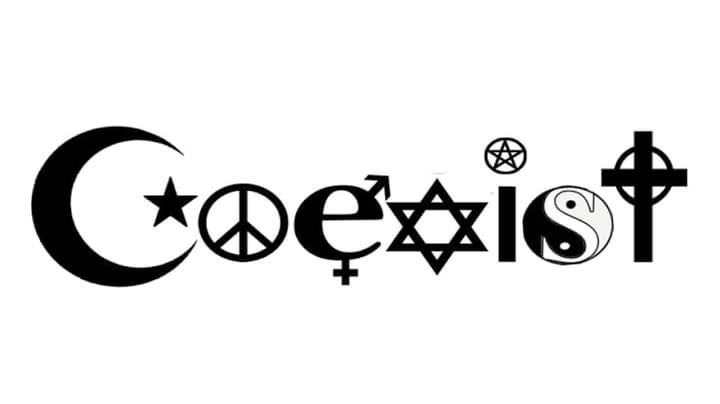In 1543, three Portuguese travelers aboard a Chinese ship arrived in Japan and became the first Europeans to visit the country. That was 58 years after Portuguese missionaries and slave traders arrived in Nigeria. Five years later, in 1548, Francis Xavier, a Portuguese Jesuit, arrived from Goa to introduce Christianity to the Japanese.
As it is characteristic of them, the arrival of the Christian missionaries came with the slave plaque. Along with the trade in solid minerals which flourished between Japan and her newfound partners, the Europeans also began to buy Japanese nationals and prisoners of war into slavery in Macau until 1613 when the Chinese government prohibited the Portuguese from bringing Japanese slaves to China.
Portuguese trade with Japan prospered until 1641, when Christianity became critically portrayed as a “foreign religion of colonialism” and was banned by the Japanese government, and Portuguese traders were replaced by the Dutch, who were barred from engaging in missionary work. The Japanese leaders learned what Christian missionaries had done to support and enable the colonization and enslavement of peoples in Africa and Asia. They wanted nothing to do with it once they had successfully learned to manufacture firearms.
The leaders accused many of the missionaries of disrupting and destabilizing Japanese cultural values and attempting to colonize their country. They were equally accused of making efforts to weaken Japan politically by creating Christian factions among their feudal lords, daimyo. Like so many Christians of their day, the missionaries were intolerant of any other religion and incited attacks on Shinto shrines and Buddhist temples in Japan.
It is estimated that over 400 of the Christian missionaries were captured and executed by the Japanese government in a bid to cleanse their country of the influence of what was considered injurious to their culture and ethos. The famous 26 ‘Martyrs of Japan’ were executed by crucifixion on February 5, 1597 in Nagasaki.
Today I wish Africa did everything the Japanese did to the missionaries except executions. Instead of execution, they should have been expelled expressly, maybe we also would have been like Japan today; a nation with deep core values that rely on thinking of others, doing your best, not giving up, respecting your elders, knowing your role, and working in a group. These concepts are taught explicitly and implicitly to Japanese from nursery school into the working world.
These ideals are so deeply enshrined in Japanese culture that on the streets of the country, you find the ‘Mujin hanbai’ which are small stalls mounted on the side of the road or even in the city, where farmers or others put their packed fruits for sale, and leave a small box for people to pay. No one steals the fruits, vegetables, or money, everyone pays the exact amount. You won’t find this attribute in the countries of the missionaries who brought them a foreign religion.
Today, there are an estimated 1.9 million Christians in Japan, living side by side with Shintos and Buddhists, who are in the majority. But in my country Nigeria and my continent Africa, Christians and Muslims bedevil our traditional religions. They call our cultures and traditions evil and denigrate our deities without retribution, they insist that we can’t practice our traditional religions side by side with them and they must convert us before we will be accepted, yet our country and continent continue to deteriorate, and retrogress under the leadership of adherents of these foreign religions. Dishonesty and wickedness continue to mow our traditional values in the face of a barrage of attacks from self-righteous foreign dogmas.
In the end, my appeal is that it is too late to contemplate expelling anyone or any religion regardless of the origin. But it is early enough for the adherents of these foreign dogmas to accept that we can all co-exist together with our different beliefs, without attempting to convert one another, and by doing so, our society will be healthier.
Citizen Agba Jalingo is the Publisher of CrossRiverWatch and a rights activist, a Cross Riverian, and writes from Lagos.
NB: Opinions expressed in this article are strictly attributable to the author, Agba Jalingo, and do not represent the opinion of CrossRiverWatch or any other organization the author works for/with.
Since You Are Here, Support Good JournalismCrossRiverWatch was founded on the ideals of deploying tech tools to report in an ethical manner, news, views and analysis with a narrative that ensures transparency in governance, a good society and an accountable democracy. Everyone appreciates good journalism but it costs a lot of money. Nonetheless, it cannot be sacrificed on the altar of news commercialization. Consider making a modest contribution to support CrossRiverWatch's journalism of credibility and integrity in order to ensure that all have continuous free access to our noble endeavor. CLICK HERE |
New Feature: Don't miss any of our news again.Get all our articles in your facebook chat box.Click the Facebook Messenger Icon below to subscribe now
Text Advert by CRWatch :Place Yours

Will You To Learn How To Make Millions Of Naira Making Special Creams From Your Kitchen?.Click Here
Expose Your Business And Make More Sales. Advertise On CrossRiverWatch.com Today



Leave feedback about this